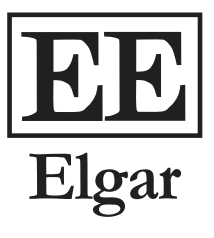Chris Bilton looks at the dominant role played by global internet companies in today’s creative and media industries

Photo credit: Gijsbert van der Wal
In November 2014 a photograph of schoolchildren posted on Facebook went viral. The photograph showed a group of children absorbed in their mobile phones, seemingly oblivious to Rembrandt’s masterpiece The Night Watch immediately behind them. Some commentators found the image a disturbing comment on a narcissistic youth culture; others, more optimistic, argued that the children were using an app to study the picture. Either way, the painting itself had receded into the background, whilst viral sharing of the photograph has further obscured its original meaning.
In today’s creative economy, what we consume has become less important than how, where and with whom we consume it. The old mantra ‘content is king’ has been replaced by ‘context is king’.
The businesses that best understand this new attention economy are no longer intent on selling us products. Instead they compete for our attention. A flood of digital information, available instantaneously at zero marginal cost, has reduced the value of music, film and books. In this era of free content, the real unit of value is the consumer, not what is being consumed.
The ‘big four’ of Facebook, Google, Amazon and Apple have become the dominant players in today’s creative and media industries. The publishers, broadcasters, record labels and news organisations which previously acted as all-powerful ‘gatekeepers’ to content have been outmanoeuvred. The new intermediaries – together with other businesses providing broadband services or multimedia packages – are instead intent on controlling the business of consumption.
It does not really matter what we are looking at,
so long as we are looking, sharing and liking
Crucially, these new intermediaries are no longer invested in controlling the production or distribution of content. They are ‘content agnostic’ – it does not really matter what we are looking at, so long as we are looking, sharing and liking. This has led to a disclaimer of ethical liability – the new intermediaries are not responsible for the information consumers choose to share. This disclaimer has an economic dimension too. Platform providers can afford to take a relaxed approach to illegal file-sharing and copyright protection, taking advantage of content creators’ weak bargaining position, because their own revenues depend on advertising and consumer data, not intellectual property.
Content creators (artists, musicians, writers) find themselves increasingly marginalised in this new creative economy. The old creative economy depended on the value of copyright, with a percentage of royalties on product sales trickling back to content creators. With the advent of free content, and with even legal sites offering vanishingly small returns, artists’ earnings have shrunk. In a European survey of writers, illustrators and designers involved in print publications, the average annual earnings were approximate £12,500 (€17,500) per annum. Meanwhile the combined market valuation of the Big Four in June 2017 amounted to approximately $2 trillion (about the same as the annual GDP of France).
What can content creators do to defend their livelihoods in this environment? Crucially, they must reclaim their relationship with audiences and fans. Content alone is no longer enough – the social experience of consumption should interest artists as much as it does their users. The shift in the music industry from recorded to live music as the major revenue stream is one indication of the direction of travel here. Indeed independent musicians have been some of the most imaginative in co-creating new relationships and shared experiences with fans.
Whilst the odds seem to be stacked against them, artists do enjoy some strategic advantages. Intimacy, trust and authenticity are diluted as businesses grow. Most fans would prefer to talk to an artist at the back of a gig, or attend a pre-screening talk with a film-maker, rather than interfacing with an algorithm.
The short title for this kind of relationship-building activity is marketing – a term which can have negative connotations for some artists, who have typically experienced marketing as something done to them rather than by them. In my next blog post I will say some more about marketing in the creative industries, and how this can be seen as part of the creative process, not just a business activity.

The Disappearing Product by Chris Bilton is out now


Leave a Reply